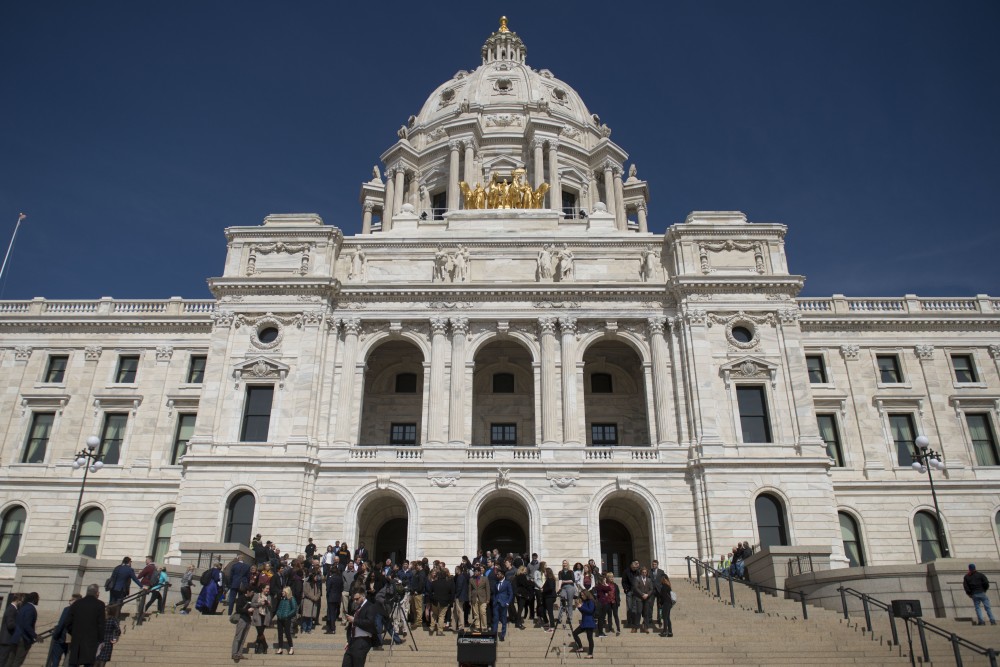With just hours to spare in the regular session, the legislature allocated half of what the University of Minnesota requested in state funding for the next two fiscal years.
The higher education omnibus bill, passed Monday, allocates the University $43.5 million beyond base appropriations — half of its $87 million ask. The bill also requests that tuition increases do not exceed 3 percent each year.
“The main [people] that we centered this bill was around our students,” said Rep. Connie Bernardy, DFL-New Brighton, chair of the Minnesota House higher education committee, at the meeting. “We are here for you; we are trying to address the high cost of college and make it more affordable and keep high quality college.”
With the University receiving a partial allocation, Regent Steve Sviggum said the University is going to have to be “extremely aggressive in budgeting.” University leaders may look to administrative costs and the number of employees at the school for budget cuts, he said.
While outgoing University President Eric Kaler’s six-year plan to slash $90 million in administrative costs is on track to exceed its goal by $1 million, Sviggum said the University will have to be “prudent” in the face of limited state funding.
Earlier this session, Kaler said a full allocation of the $87 million request would result in a 2 percent tuition increase for undergraduate resident students. A partial allocation would result in sharper hikes, he said.
During discussion, some lawmakers remarked that the University received less than Minnesota State system colleges. The University system and Minnesota State system were given similar funds in the past, but the University has received continually less money from state funds since 2015.
“At some point, we are going to suffer economically down the road because we just haven’t taken care of the jewel of our institution,” said Sen. Ron Latz, DFL-St. Louis Park, on the Senate floor.
Concerns of transparency and productivity overshadowed legislative discussions. Legislative leaders Gov. Tim Walz, Speaker of the House Melissa Hortman and Senate Majority Leader Paul Gazelka were rebuked for closed-door budget meetings Sunday.
In a press conference unveiling budget numbers, the leaders promised transparency throughout the committee process moving forward. However, many lawmakers said the promise was not upheld.
Lawmakers referred to the process as a “leadership tribunal,” as committee chairs had closed discussions with administrators rather than convening publicly.
“The leadership tribunal is meeting in secret in 15 minute blocks, working out the difference in all of the other bills, no public process, no transparency and no one will know what you are doing,” said Rep. Kurt Daudt, R-Crown, on the House floor. “And my guess is, based on what you put in these bills, that’s exactly what you want.”
Rep. Bud Nornes, R-Fergus Falls, said he felt uninformed when the higher education bill was introduced to the floor. But he said thinks the bill was a good compromise in the end.
“When we got to the final bill, like we did last night, the only person in the room that really knew the details was the chair of the committee,” Nornes said. “It’s pretty hard to stage any kind of a discussion or debate on the floor when it’s all new. You know, you just haven’t had a chance to digest it yet.”
A special session will convene to vote on other omnibus bills later this week, legislative leaders said.








